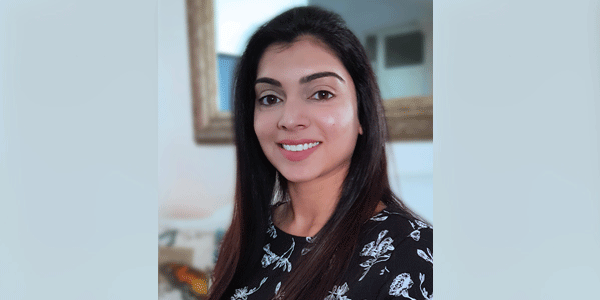Wits PhD sets national standard for human tissue transfer
- Ufrieda Ho
Dancing to a corporate tune didn’t turn out to be the kind of legal professional Safia Mahomed wanted to be.
She always felt law had to have deeper value, truer pursuits of social justice. So she called it a day as a practising attorney at the end of 2011 and returned to academic studies in 2012. After completing her Master’s at Unisa, she pursued a doctorate in bioethics and health law. She started her PhD at the Steve Biko Centre for Bioethics in the Faculty of Health Sciences at Wits University in 2014.
This year Mahomed completed her PhD with a thesis focused on developing an ethical and legal framework for the regulation of biobanks [repositories of human material and associated data] in South Africa.

Her doctorate included creating a Material Transfer Agreement (MTA) template for the transfer of human materials across South Africa’s borders. It was pioneering and informed how the Department of Health went about adopting a national MTA, which was not in place before in South Africa. This July, Mahomed’s MTA was gazetted into law in South Africa.
“With a national MTA in place, we are laying the foundation to build a more comprehensive ethico-regulatory framework for biobanks in the country,” says Mahomed. Creating an easily accessible and useable template helps drive the adoption of standardisation and best practice.
MTAs may seem like the stuff of labs and research facilities, with little to do with the average person. But Mahomed’s work highlights just how important legal protection is for vulnerable population groups who are usually the source of “biological materials”.
Biological materials - like tissue and blood samples - are collected and stored in biobanks at research facilities around the world. Samples are often transferred and shared between researchers, but limited standardised legal agreements have existed in South Africa governing the transfer of biological materials.
Participants often don’t have clear legal protection over these samples. It makes them vulnerable when they place their complete trust in authority figures like researchers and doctors. Participants may not fully understand why their biological samples are being collected in the first place and stand to be exploited. When they sign on the dotted line they often waive their rights in how their samples will be used even decades later.
Researchers too can find themselves in the middle of disputes when samples are not returned or when the ownership of samples is contested. This is especially true when there is a research breakthrough, when there is scientific credit to be claimed, or if research leads to a product that has commercial gain.
“Back in 2014 when I was thinking of doing my PhD, I knew I didn’t want to do it just for the sake of it and just to put a thesis on a shelf,” she says of her work that has successfully changed the law.
Inspired by the conversations and debates in her home, where her mom is an academic and her dad a medical professional, she realised she wanted – through her PhD – to find ways to close the considerable gaps in the law regarding the field of human tissue transfer for health research. The law’s “silence”, as she calls it, held too many potential risks.
Her framework consists of four key pillars: informed consent; defining clear custodianship of human materials (the national MTA states that custodianship remains with the providing institution and ownership remains with the research participant); guidance on benefit sharing; and provisions for regulations to extend to secondary uses of human materials. The framework also covers respect for socio-cultural belief systems and traditions.
Mahomed, who has served on the Biobanks Ethics Committee at Wits University since 2013, credits Ntibi Maepa from the Wits legal office for advice in developing an MTA as well as the input of Mahomed’s supervisors Professors Kevin Behrens, Melodie Labuschaigne and Ian Sanne. The Committee adopted her MTA even before it became national policy – testing and proving its value and impact.
“I am happy we now have a national MTA in place that will create a balance between protections for research participants and the advancement of science,” she says.
Seeing her research adopted and given life as actual legal policy has been “deeply rewarding and humbling”, says Mahomed, who today, is a senior lecturer in the Department of Jurisprudence at Unisa’s College of Law.
Giving up practising law and becoming a lecturer has also been her “right fit”. Teaching allows her to guide another generation to think of law as problem solving through fairness, protection, relevance and accessibility.
Mahomed is also Chair of Unisa’s Biotechnology and Medical Law Flagship, a community engagement project focused on building education and awareness on ethical and legal issues regarding health.
“The law has to keep up with science,” she says – it keeps her busy. But she does try to take a breather occasionally by getting stuck into her favourite Netflix series or has even allowed her extreme sports fanatic husband, Bilal Rangraje, to convince her to jump out of planes with him, skydiving.

